The Best 25 Key MIDI Controller Keyboards
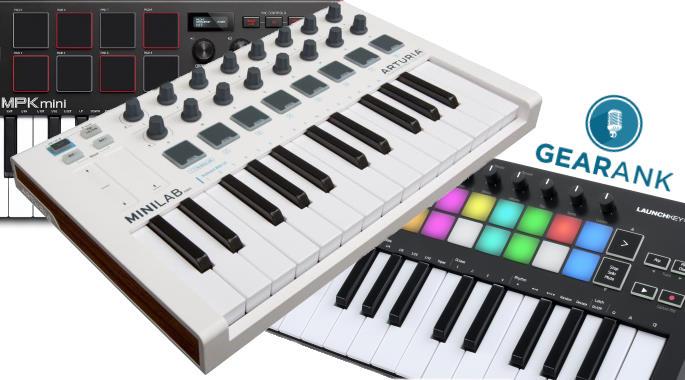
Author & Contributors
Raphael Pulgar
I've been an audio engineer for 20 years specializing in rock and metal recordings. I also play guitar and produce original music for my band and other content creators.
Arturia MicroLab
Cons
- Only has basic controls
Pros
- Compact and portable
- Rugged build quality
- Plug and play
Released in 2019, the Arturia Microlab is a compact, budget-friendly 25-key MIDI controller.
Arturia calls it "universally compatible"; meaning it can connect with anything from tablets to other USB class-compliant devices. Its low power consumption enables it to work with mobile devices without external power.
Aside from its appearance, the compact size and portability is great for musicians and producers on the go. The build quality is surprisingly rugged for the price and the free software bundle get you up and running fast.
One drawback is that the controls are limited to the basics. This shouldn't be a deal breaker for people who only want the essentials.
Despite its colorful appearance, it is anything but toy-like: It still enables creativity to flow into your compositions and its quirky appearance does not get in the way.
Specifications
- Keys: 25 Velocity Sensitive Synth action, Mini-keys
- Pads: None
- Buttons & Knobs: 2 x Touch Strips (pitchbend, modulation, preset browsing)
- Octaves: +/- 4
- Bundled Software:Bitwig 8-Track, Arturia Analog Lab Lite, UVI Grand Piano Model D
- Power: USB Bus Powered
- I O Connectivity: USB cable
- Compatibility: OS X 10.10 or later, 64-bit , Windows 7 SP1 or later, 64-bit
- Dimensions: 16.6" x 3" x 7"
- Weight 1.8 lbs.
| Website | Source | *Rating Value |
| MusicTech | Dave Gale | 90/100 |
| MusicRadar | Jon Musgrave | 90/100 |
Arturia MiniLab MkII
Cons
- Cheap feeling encoders
- Touch strips feel like a compromise
- The drum pads are a bit small for larger hands
Pros
- Amazing value for money
- Multiple encoders and pads for the size
- Synth action keys feel great
For the longest time, I never really saw it necessary for me to own a MIDI controller keyboard. Firstly because I'm not a keyboard player, so I assumed that I won't be able to utilize it in my songwriting. Secondly, the last time I had a MIDI controller, I had a large 88-Key model that I found was too unwieldy and inconvenient.
It was down to choosing between the Arturia Minilab MKII and the Akai Professional MPK Mini MKIII. I chose the Arturia because I didn't like the "joystick" mod wheel and pitch control on the MPK Mini MKIII. While the Minilab MKII doesn't have a traditional modwheel, the touch strips made better sense to me.

In place of a regular mod and pitch wheel are two touch strips.
The Arturia MiniLab MkII is a mini-laboratory of MIDI controls with emphasis on portability.
To save on space, it features 25 slim keys, but they do have velocity sensitivity. It features 16 encoders for more control over your DAW software, and 8 customizable RGB pads for triggering samples, with two banks to work with. It also comes bundled with nifty software which includes Ableton Live Lite, Analog Lab Lite and UVI Grand Piano.
Buildwise, the MiniLab MkII feels solid. Even though it's made of plastic, I didn't feel any excess plastic residue and everything feels solid with no internal rattle when I shake it. The keys are finished nicely and the resistance is just right for synth action. There were some keys that were fractions of an inch higher or lower than the others but it's not really a major issue.
The control knobs felt a bit flimsy to the touch but the potentiometer rotation is smooth and consistent across all knobs. The pads felt a bit small but I rarely use them. Still, if you like making beats on pads, the layout and size might not be the best especially for harder hitters.
What I don't like about the Minilab MkII is the fact that I had to settle with touch strips instead of pitch and mod wheels. I would have preferred even a smaller integration of the two wheels as long as it's mechanical. The strips work fine but I do feel it lacking in precision especially when my left hand's fingers are calloused from guitar playing.
Overall, the Arturia MiniLab MkII is a great, compact MIDI controller and is nearly peerless at this price point. There are some places where Arturia chose to cut costs but everything else looks and feels solid. Even years after its release, the MiniLab MkII is still popular and can be seen gracing the desks of prolific and talented musicians all over the world.
Specifications
- Keys: 25 Velocity Sensitive Slim-Keys
- Pads: 8 RGB Pads
- Buttons & Knobs: 16 Encoders, Octave +/-, Sustain button, Volume
- Octaves: +/- 4
- Bundled Software: Analog Lab Lite, Ableton Live Lite and UVI Grand Piano
- Power: USB Bus Powered
- Connectivity: USB, Sustain Pedal
- Compatibility: OS X 10.7 or Later, Windows 7 or later
- Dimensions: 14" x 2" x 8.7"
- Weight 3.3 lbs.
| Website | Source | *Rating Value |
| MusicRadar | Computer Music | 90/100 |
| MusicTech | David Gale | 80/100 |
| Gearank | Raphael Pulgar | 93/100 |
Novation Launchkey Mini mk3
Cons
- Limited integration with other DAWs
Pros
- Great integration with Ableton and Logic Pro
- Chord Mode and Scale functions makes composing intuitive
Ableton Live is one of the most popular DAWs used for live performance. The clip-based workflow is perfect for those making improvised layering of existing song parts.
Some MIDI Keyboards are designed with a specific DAW in mind. Case in point is the Novation LaunchKey Mini mk3, designed to integrate primarily with the Ableton Live DAW for full control over sample triggering, note for note performances and on-the-fly knob tweaking.
It also works with other DAWs, but may require more setup time to map controls.
Its deep integration of Ableton Live makes it an essential piece of gear for those who not only want to trigger clips but also perform notes and chords. The Launchpad is capable of this but for those that prefer keys, the Launchkey series is the way to go.
While the compact size enables portability, it may be too compact for some people more used to larger-spaced pads and keys. It's also not as comparably optimal for use with other DAWs and may need manual parameter assignment in those cases.
If your workflow revolves around Ableton Live and want a controller that fully integrates with it, the Novation Launchkey Mini mk3 is a great place to start
Specifications
- Keys: 25 Velocity Sensitive Synth action Mini-keys
- Pads: 16 x Velocity-sensitive RGB Pads
- Buttons & Knobs: 8 x Rotary Knobs , Octave +/-, Pitch, Modulation
- Octaves: +/- 4
- Bundled Software:Ableton Live Lite, AAS Session Bundle, Additional Bundled Plug-ins
- Power: USB Bus Powered
- Connectivity: USB, 1 x 1/4" (sustain), 1 x 1/8" (MIDI out)
- Compatibility: OS X 10.7 or Later, Windows 7 or later
- Dimensions: 12.9" x 1.22" x 6.77"
- Weight 1.55 lbs.
| Website | Source | *Rating Value |
| MusicTech | John Andrews | 90/100 |
Akai Professional MPK Mini MK III
Cons
- Joystick/Thumbstick isn't the best substitute for mod/pitch wheels
Pros
- Keybed one of the best in its price range
- MPC Pads
- Comprehensive software suite
Despite being smaller than most MIDI controllers, the Akai Professional MPK Mini MK III Packs a lot of features not usually found on similarly sized and priced controllers.
8 backlit, velocity sensitive pads enable nuanced rhythmic performances while assignable knobs integrate with many major DAWs.
In place of a pitch wheel, the Pitchbend/modulation joystick enables more control from less space, keeping the MPK Mini MKIII at a featherweight 1.65lbs.
For the price, the MPK Mini MKIII compromises very little with regard to production flexibility. The pads carry over Akai's famed feel and the joystick control is a new way to modulate pitch and other parameters.
The only cons would be that the keys might be too small for larger hands, but this is a common issue among compact keyboard controllers. The joystick feature might not be to the liking of some that are more used to wheel controls.
Overall, If you're looking for a suite of features in a small package, the MPK Mini MKIII is a good, affordable pick.
Specifications
- Keys:25 Synth Mini-keys
- Pads: 8 x Backlit, Velocity-sensitive Performance Pads
- Buttons & Knobs: 4-way Pitchbend/Modulation Joystick, 8 x Assignable Knobs, Pad controls, Arpeggiator
- Octaves: +/- 4
- Bundled Software: MPC Beats Software, Sample Packs
- Power: USB Bus Powered
- Connectivity: USB, Sustain Pedal
- Compatibility: OS X 10.8.5 or later, Windows 7 SP1 or later
- Dimensions: 12.5" x 1.75" x 7.13"
- Weight 1.65 lbs.
| Website | Source | *Rating Value |
| Sound On Sound | Simon Sherbourne | 96/100 |
| ask.audio | Hollin Jones | 96/100 |
Nektar Impact LX25+
Cons
- Build quality and materials could be better
Pros
- Great value with many essential features
- Seamless integration with most DAWs
- Easily portable
The Impact LX25+ features Nektar DAW Integration that provides pre-mapped controls for most major DAWs. It has dedicated navigation and transport controls and presets that allow you to integrate controls within your DAW. The velocity sensitive keys come in a full-size piano-style build.
This MIDI controller has all the essentials for most users, which makes it a good value for its price. It works seamlessly with most DAWs, such as Logic Pro, FL Studio, Garageband and BandLab. The controls, keyboard, and pads were responsive and easy to manage when it comes to different kinds of production workflows.
Even with its multiple features, it has a lightweight build that makes it portable enough to carry around.
Despite its reported durability, the plastic build leaves much to be desired.
Versatility at this price price point is headlined by the Nextar Impact LX25+. This MIDI keyboard controller is a jack-of-all trades for musicians, producers and songwriters.
Specifications
- Keys: 25 note velocity-sensitive synth-action keyboard
- Pads: 8 velocity sensitive pads
- Buttons & Knobs: 1 Pitch bend wheel, 1 Modulation wheel, Octave Up and Octave Down shift buttons, Transpose Up/Down shift buttons, 8 potentiometers, 1 30mm faders, 6 dedicated transport buttons, 5 preset locations store control settings, 1 Page button (for Nektar DAW Integration only)
- Octaves: 9 octaves
- Bundled Software: Bitwig 8-Track
- Power: USB powered
- Connectivity: 1/4” TS jack foot switch input (MIDI Assignable), USB port on rear panel, and USB bus powered. Connects to iOS via Apple Camera Connection Kit (separate purchase)
- Compatibility: USB Class compliant. iOS, OSX, Windows XP, or higher, Linux (MIDI driver software required)
- Dimensions: 18.75" x 10.5" x 2.75"
- Weight 4 lbs.
| Website | Source | *Rating Value |
| Musician Wave | Brian Clark | 80/100 |
Akai Professional MPK225
Cons
- Needs manual configuration for some DAWs
Pros
- Semi-weighted keys
- Great pad and key quality
- Robust build
The Akai MPK 225 keyboard controller bridges the gap between controller and instrument. The semi-weighted keys with aftertouch make it feel more familiar for pianists. The RGB MPC-style pads give beatmakers a great platform for laying down grooves.
Akai is more known for using synth style keys for their controllers. The use of semi-weighted keys give this compact controller a premium feel. However, one of the primary reasons to get this controller is the pads. Performance pads were actually invented by Akai so it's no surprise that these would be the controller's strongest selling points.
Aside from the pads, other features it shares with the MPC series include note repeat for glitchy sounds, full level for all full velocity hard hits, and an arpeggiator.
One thing to watch out for is that older firmware versions are a hit-or-miss with DAWs like Logic Pro X. Current firmware seems to have addressed this according to some user reports but it's one thing to watch out for if your primary DAW is Logic.
Looking for a compact controller that doesn't compromise on the beatmaking potential? Need a controller/pad setup with very little compromise between both? The Akai MPK225 is your best option.
Specifications
- Keys: 25 full size semi-weighted with aftertouch.
- Pads: 8 which are velocity and pressure sensitive and they light up MPC style (with full RGB).
- Octaves: 10 by using Octave Up and Octave Down controls.
- Bundled Software: Ableton Live Lite DAW, MPC Essentials software sampler, and the Air Hybrid 3 and SONiVOX Twist virtual synths.
- Power: USB powered and can use an optional 6V DC, 1A, power adapter (sold separately).
- Connectivity: USB and 5-pin MIDI out and MIDI in.
- Compatibility: Mac OS X 10.4.11 or later + Windows 10, 8, 7, Vista, and XP. It is also iOS compatible but you'll need a CCK and external power supply as well.
- Dimensions: 19.25" x 11.75" x 3.63"
- Weight 6.09 lbs
| Website | Source | *Rating Value |
| YouTube | Barret's Music | 80/100 |
Things To Consider When Buying A 25 Key MIDI Controller
- It's becoming ever more commonplace for 25 key MIDI keyboards to only have USB ports on them, because the latet computer operating systems already know What MIDI is, and works seamlessly. If you need to directly control instruments that only have the MIDI style 5 pin DIN connector then you'll need to ensure the controller you buy has a standard 5 pin MIDI out port, otherwise you'll also have to buy a USB to MIDI converter (link to Amazon.com).
- Although some 25 Key MIDI controllers have full sized keys, many don't. Most of them also don't have full weighted keys. If you're a piano player and you need these features then read the specifications carefully. If you do need something bigger then take a look at our guide to 49 Key MIDI Controller Keyboards. Smaller keys and overall size makes for an easy instrument to learn the rudiments of MIDI.
- If you need one for portable use with a laptop or tablet then you need one that takes its power from USB, however this comes at the cost of draining your device's battery more quickly. You also may have problems getting enough power from the iPad which provides only 20% of the USB 2.0 standard of 500mA - if you have a problem you'll need to get a powered USB hub.
- If you need these features then read through the specifications carefully as some of the lower priced options don't always include these.
What Type Of Connectivity Do You Need?
Key Size & Weight
Power Supply
Pads, Mod Wheels, Aftertouch
Best 25 Key MIDI Controller Selection Methodology
The first edition was published in 2015 and the current.
We looked at all the 25 key MIDI keyboard controllers available at major online American music gear retailers and selected 25 of them to put on our short list for closer examination - see them in the Music Gear Database. We then gathered feedback on each one in the form of ratings, reviews and forum discussions and analyzed that information with the Gearank Algorithm to produce rating scores out of 100 for each of them. This process provided us with the information to report on each of the highest rates ones we recommended above. Over 25,800 review and rating sources were analyzed during this process. For more information about our methods see How Gearank Works.
About the Author and Contributors
Here are the key people and sources involved in this guide's production - click on linked names for information about their music industry backgrounds.
Lead Author & Researcher
Raphael Pulgar
I've been an audio engineer for 20 years specializing in rock and metal recordings. I also play guitar and produce original music for my band and other content creators.
I use my Arturia MiniLab MKII with sample libraries like NI Miroslav Philharmonik 2, Kontakt, Toontrack Superior Drummer 3, Toontrack EZKeys, and Spitfire Audio. I also use it with virtual instruments like Absynth, Roland ZENOLOGY, and a few other smaller VST instruments.
Contributors
Alexander Briones: Supplemental writing.
Jason Horton: Supplemental product research, Editing and Illustrating.
Media
Main/Top Image: Created by Gearank.com using photographs of the Akai Professional MPK Mini MK III, Arturia MiniLab MkII and Novation Launchkey Mini mk3.
The individual product images were sourced from websites, promotional materials or supporting documentation provided by their respective manufacturers.



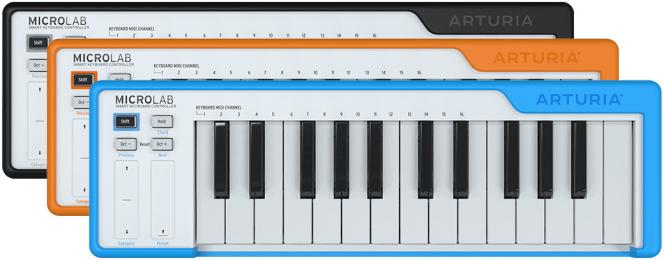
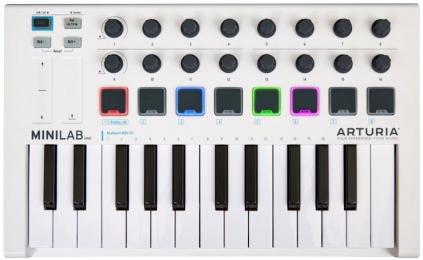
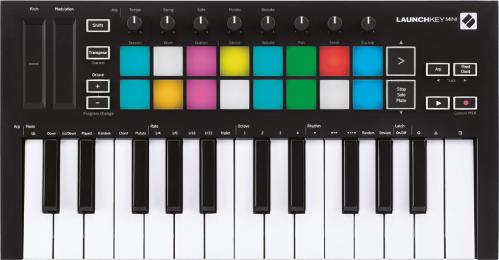
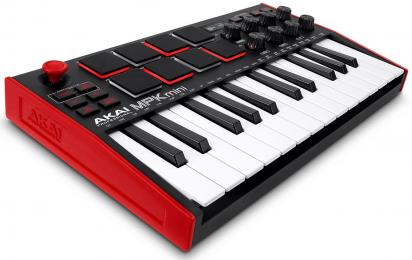
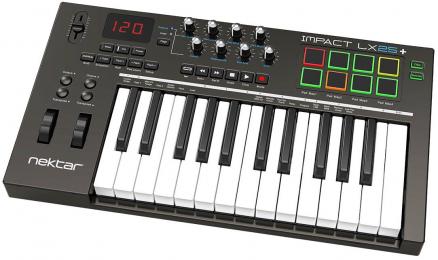
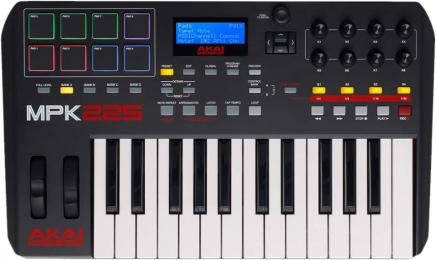
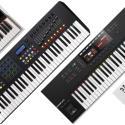
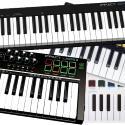
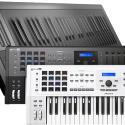 The Best 49 Key MIDI Controller Keyboards
The Best 49 Key MIDI Controller Keyboards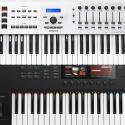
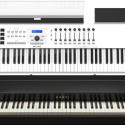
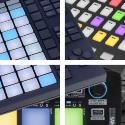
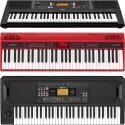
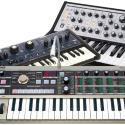
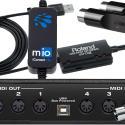
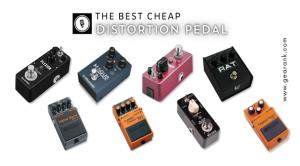
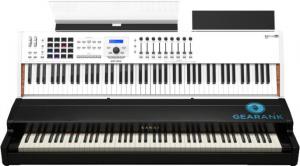
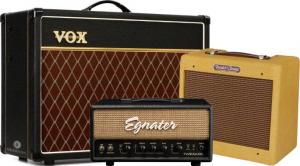
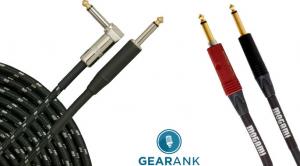
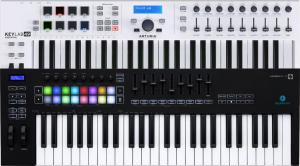
Comments
I currently own the Akai MPK
Submitted by Alex (not verified) on
I currently own the Akai MPK Mini with Ableton, however, the keys aren't wide enough for my fat fingers. Are there any mini keyboards with standard width keys?
When we published the July
Submitted by Jason Horton on
When we published the July 2022 Edition the following controllers came off the recommended list:
Publication of our May 2021
Submitted by Jason Horton on
Publication of our May 2021 Edition resulted in the Novation Impulse 25 keyboard controller coming off the recommended list above,but you can still see our analysis of it here.
USB Midi only keyboards are
Submitted by Jack (not verified) on
USB Midi only keyboards are no good if you want to connect them straight up to a 5 Pin midi DIN sound module or something like a Korg Volca FM etc.
The author's Amazon link to a USB to Midi adapter is no use in this case. That device only works with an actual computer which also powers it. To connect a USB Midi keyboard to a Volca module or other sound module, you need a 'USB Midi host adapter'. Google is your friend here.
Good point. I am looking for
Submitted by Tim James (not verified) on
Good point. I am looking for a very small keyboard with an actual midi output - the only one so far I have found is the Alesis Q25.
As a result of our May 2020
Submitted by Jason Horton on
As a result of our May 2020 update the following came off the recommended list above, but you can still see our analysis of them:
I really like your review,
Submitted by Chris (not verified) on
I really like your review, maybe you can also add novation impulse 49 and not only 25. Thanks
Thanks for your suggestion
Submitted by Jason Horton on
Thanks for your suggestion Chris, however this guide is specifically about 25 Key Controllers so you'll find the Novation Impulse 49 in our guide to 49 Key Controllers.
The following keyboard has
Submitted by Jason Horton on
The following keyboard has been removed from our recommended list above due to being discontinued by the manufacturer: Native Instruments Komplete Kontrol S25. The Komplete Kontrol A25 didn't rate high enough to make it to the list.
As a result of the September
Submitted by Jason Horton on
As a result of the September 2018 update to this guide, the following keyboards came off our recommended list above but you can still read our analysis:
Seriously well-considered and
Submitted by Stefan (not verified) on
Seriously well-considered and well-written article.
Thank you very much Stefan!
Submitted by Jason Horton on
Thank you very much Stefan!
I too am waiting for Arturia
Submitted by Martin (not verified) on
I too am waiting for Arturia Minilab MK2 - people say that it has improved much and is better that many competitors for this price in mini MIDI segment.
Also, do you take negative reviews into account? Because there has been some noise around M-Audio Oxygen line quality issues - lots of reports of keys acting weird, triggering double notes, not triggering at all etc. So, I'm not sure if your current pick is safe to recommend unless M-Audio get their stuff fixed in some new M5 edition.
Our ratings take account of
Submitted by Jason Horton on
Our ratings take account of all types of reviews including positive and negative. You can learn more about how our ratings are calculated, and what they mean, in How Gearank Works.
It's so annoying that you
Submitted by Jim LIttle (not verified) on
It's so annoying that you didn't list whether the Native Instruments Komplete Kontrol S25 has full-size keys. That's the most important consideration, in my opinion.
I'd be interested in a
Submitted by JasonG (not verified) on
I'd be interested in a comparison of Bluetooth-enabled versions of these devices.
Mini keys! Check specs
Submitted by Babu (not verified) on
Mini keys! Check specs section
Thanks for the feedback - we
Submitted by Jason Horton on
Thanks for the feedback - we'll look at doing that when we next update this guide.
I wonder why the Arturia
Submitted by Fernando Sousa (not verified) on
I wonder why the Arturia Minilab is not on the list
The Arturia MiniLab has been
Submitted by Jason Horton on
The Arturia MiniLab has been discontinued and replaced by the Arturia MiniLab MkII which didn't have sufficiently high enough ratings to be included in this guide at the time of publication - it is on our watch-list and we may recommend it if it scores high enough when we next update this guide.
NOVATION SL25 MK2 has 8
Submitted by OJK Tardis (not verified) on
NOVATION SL25 MK2 has 8 encoders, 8 pots, 8 touch-sensitive faders, 8 pads, pitch/mod expression stick, XY pad, and 25 full size keys, speeddial, and automap for automatic DAW and VST control.
Thank You best one as far as
Submitted by Taylor (not verified) on
Thank You best one as far as i can see.
If anyone would like to read
Submitted by Jason Horton on
If anyone would like to read meta-reviews about the controllers that we used to recommend until the June 2017 update, you'll find them here:
I always use 5-pin MIDI. Don
Submitted by PhiL (not verified) on
I always use 5-pin MIDI. Don't understand why manufacturers dropped the 5-pins and make things more complicated with USB plug adapters. Happy to see here a clear overview of 5-pins keys, great help to me in buying the right hardware. Thanks a lot!
Great helpful article, thanks
Submitted by Jaya (not verified) on
Great helpful article, thanks! It was really helpful that you included whether or not they each had actual midi ports.
I'm glad you found that part
Submitted by Jason Horton on
I'm glad you found that part useful. When doing the research for this gear guide I was surprised to find that a number of people had bought keyboards with only USB MIDI when they actually needed one with a classic 5-pin MIDI port.
I have updated the Key
Submitted by Jason Horton on
I have updated the Key Features above to include the weight of each of the keyboards.
I've made an additional
Submitted by Jason Horton on
I've made an additional update to include the dimensions of each keyboard - this is useful when deciding what type of keyboard stand or stand attachment to get.